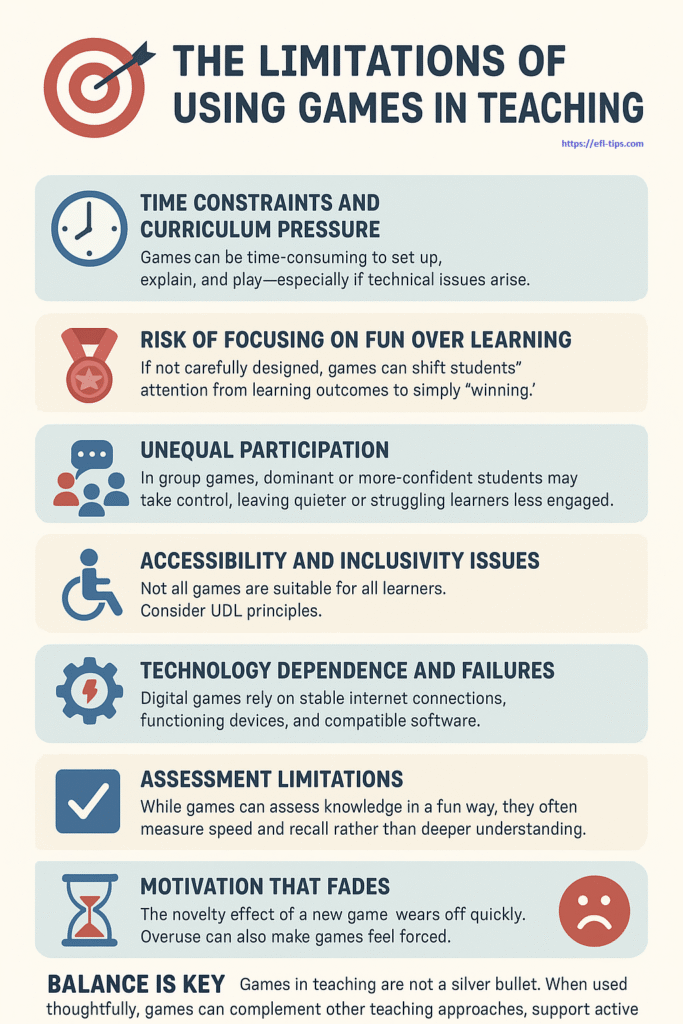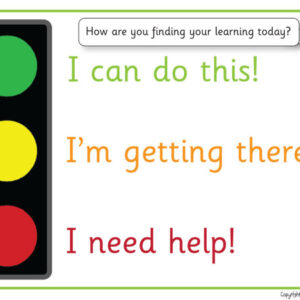Here’s a complete blog post you can use about the limitations of using games in teachGame-based learning has become a popular tool in modern classrooms. Whether it’s Kahoot quizzes, Minecraft simulations, or role-playing scenarios, games can make lessons engaging, interactive, and memorable.
However, while the benefits are often celebrated, the limitations and challenges are less frequently discussed. Understanding these limitations is essential for using games effectively and responsibly in education.
Time Constraints and Curriculum Pressure
Games can be time-consuming to set up, explain, and play—especially if technical issues arise. In tightly packed curricula, educators may struggle to balance game time with covering required content.
Example: A science teacher might spend 20 minutes troubleshooting a quiz game, leaving little time for in-depth discussion of the concepts.
Risk of Focusing on Fun Over Learning
If not carefully designed, games can shift students’ attention from learning outcomes to simply “winning.”
Result: Students may remember the thrill of the game but not the lesson content. This is particularly common when rewards overshadow reflection.
Unequal Participation
In group games, dominant or more confident students may take control, leaving quieter or struggling learners less engaged.
Impact: The game ends up reinforcing participation gaps instead of bridging them.
Accessibility and Inclusivity Issues
Not all games are suitable for all learners. Students with disabilities, limited language proficiency, or sensory challenges may find certain game formats overwhelming or exclusionary.
Tip: Always consider Universal Design for Learning (UDL) principles when selecting or designing games.
Technology Dependence and Failures
Digital games rely on stable internet connections, functioning devices, and compatible software. Technical glitches can waste valuable lesson time and frustrate both teachers and students.
Assessment Limitations
While games can assess knowledge in a fun way, they often measure speed and recall rather than deeper understanding or critical thinking.
Example: A fast-paced trivia game might reward quick answers without allowing time for explanation or reasoning.
Motivation That Fades
The novelty effect of a new game wears off quickly. Students may lose interest if the same game format is repeated too often. Overuse can also make games feel forced rather than genuinely engaging.
Potential for Competitive Stress
While some students thrive in competitive environments, others feel anxious, discouraged, or demotivated when they lose repeatedly.
Solution: Consider cooperative game formats where the class works toward a shared goal.
Balance is Key
Games in teaching are not a silver bullet—they are tools that work best as part of a varied instructional strategy. By being aware of their limitations, educators can choose or design games that truly enhance learning rather than distract from it.
When used thoughtfully, games can complement other teaching approaches, support active engagement, and make learning memorable. But they should never replace sound pedagogy, clear objectives, and inclusive practices.







